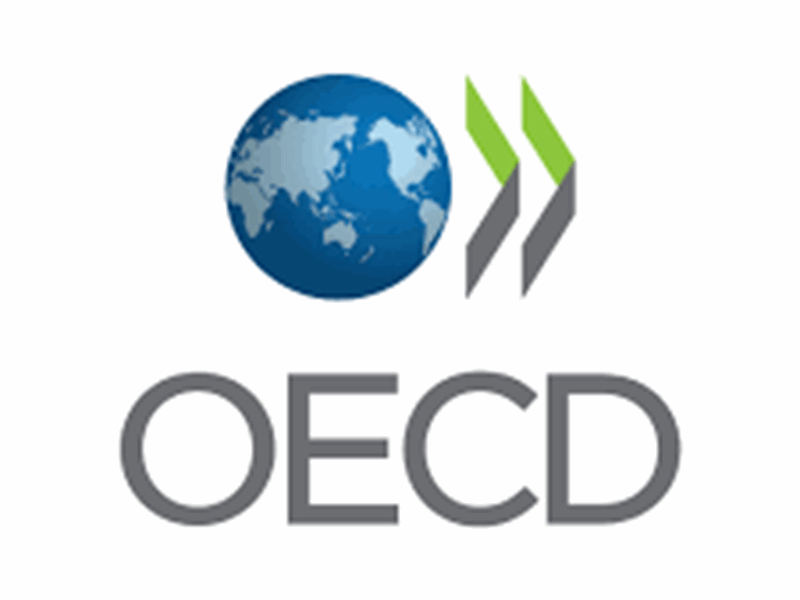Fresh Ideas Emerge for New EU Budget Levies

A New Pillar to Address Tax Challenges Arising from Digitalization of the Economy: Consensus-Based Digital Services Taxes?
This article addresses the challenges traditional tax rules face with digital business models that require little or no physical presence in customer jurisdictions. In response, several countries have enacted digital services taxes (DSTs) to capture revenue from digital businesses. The OECD/G20 Inclusive Framework seeks to reform these outdated rules through Pillar One, granting more taxing rights to market jurisdictions, but Pillar One has also introduced new uncertainties. The article suggests that rather than relying solely on Pillar One, the OECD could guide DST coordination among jurisdictions, supporting market states' taxing rights while reducing double taxation risks for multinational enterprises.

Taxation of Income from Cross-Border Services: A Global Normative and Enforcement Approach to Legal Issues and Policy Options
This article examines the challenges of international double taxation on cross-border services, particularly the complexities in tax treaty allocation rules that create uncertainty and opportunities for tax arbitrage. Business services, often managed through transfer pricing or dedicated service clauses, exemplify these issues. While transfer pricing can yield precise results without expanding tax treaty clauses, it requires substantial resources that may burden developing countries disproportionately. This raises a policy dilemma on whether the solution lies in refining norms, improving enforcement, or both. The article also questions whether developing countries should bear the cost of aligning with global transfer pricing standards or if developed nations should contribute more to capacity-building efforts.

The True Nature of Tax Treaties
This article explores significant inconsistencies in treaty law that have weakened the international tax regime, drawing on perspectives from public international law and survey data from treaty negotiators. It suggests that effective reform should incorporate greater formality, enhanced multilateral components, and the establishment of an independent tax forum to strengthen the regime.

International Tax Implications for Private Equity Investments
This article examines the international tax challenges associated with private equity funds (PEFs), which are increasingly significant players in global mergers and acquisitions and capital markets. PEFs often avoid entity-level taxation through pass-through structures, enabling investors to reduce tax liabilities, particularly through low capital gains rates on carried interest. The article critically assesses whether PEF investments should be classified as active or passive, which could shift the primary taxing jurisdiction for cross-border income, including carried interest. It further explores tax neutrality issues, noting that while PEFs achieve tax neutrality domestically, international investments may result in over- or under-taxation due to the lack of multilateral pass-through rules. The article ultimately discusses strategies to improve tax neutrality in cross-border PEF investments.

Measuring Tax Burden Efficiency in OECD Countries: An International Comparison
This article assesses the potential tax burden across OECD countries from 2000 to 2021 using both Data Envelopment Analysis (DEA) and Stochastic Frontier Analysis (SFA) to evaluate tax capacity. The study identifies countries close to their potential tax capacity versus those further from it, determining whether they might sustain a higher or lower tax burden relative to comparable nations. Results indicate that countries like Belgium, Colombia, Finland, France, Italy, Latvia, the Slovak Republic, and Sweden consistently operate efficiently near their tax capacity frontier.

Reimagining Global Tax Governance: A Two-sided Platform Perspective
This article addresses the existential challenges facing the international tax regime (ITR) in the 21st century, focusing on the "trilemma" of balancing liberal democracy, national self-determination, and economic globalization. To tackle these conflicting forces, the article proposes a new global tax governance model that meets the UN's 2023 framework guidelines for international tax cooperation and aligns with the OECD/G20 BEPS Project.
The model is structured as two concentric circles representing an ecosystem with both top-down and bottom-up governance. The top-down aspect resembles a bicameral legislative structure, creating standardization agreements under UN oversight, while the bottom-up element adopts a pledge-and-review approach inspired by the Paris Agreement. This dual framework aims to integrate global tax governance through repeated cooperation, balancing consensus with voting, and ensuring fair stakeholder representation across the global North and South. The theoretical foundation draws on a two-sided platform perspective from antitrust and international law.

Proposal for a Council Directive Amending Directive 2011/16/EU on Administrative Cooperation in the Field of Taxation
This proposed ninth directive on administrative cooperation in taxation would establish a framework for exchanging pillar 2 information from multinational entities among EU member states and with non-EU jurisdictions by transposing the OECD standard global anti-base-erosion information return into EU law.

OECD Secretary-General Tax Report to G20 Finance Ministers and Central Bank Governors (G20 Brazil, October 2024)
This report sets out recent developments in international tax reform since July 2024, including on the Two-Pillar Solution to Address the Tax Challenges Arising from the Digitalisation of the Economy. It also covers progress made on the implementation of the BEPS minimum standards and tax transparency, as well as updates on tax policy, tax and inequality and tax administration. This report was prepared by the OECD ahead of the fourth meeting of G20 Finance Ministers and Central Bank Governors held under the Brazilian G20 Presidency from 23-24 October 2024, in Washington D.C., United States.

Capital Flows and Wealth Distribution in a Global Economy with Asymmetric Countries
This article analyzes how di¤erences in production technology, nancial frictions, time discount rates, and tax policies collectively determine the long-run asset positions and wealth distribution between countries. It contributes to understanding how national policies and economic factors shape global wealth patterns over time.

Update on the Revenue Effects of GILTI and FDII, 2026 Rate Changes, and Proposed Policy Reforms
In this update, the authors analyze new data from the US Treasury to examine historical revenue effects of TCJA’s international corporate tax provisions. They also provide updated conventional estimates to assess the revenue impact of scheduled 2026 rate increases on foreign income of US corporations and assess several proposals that aim to further increase tax revenue.


































